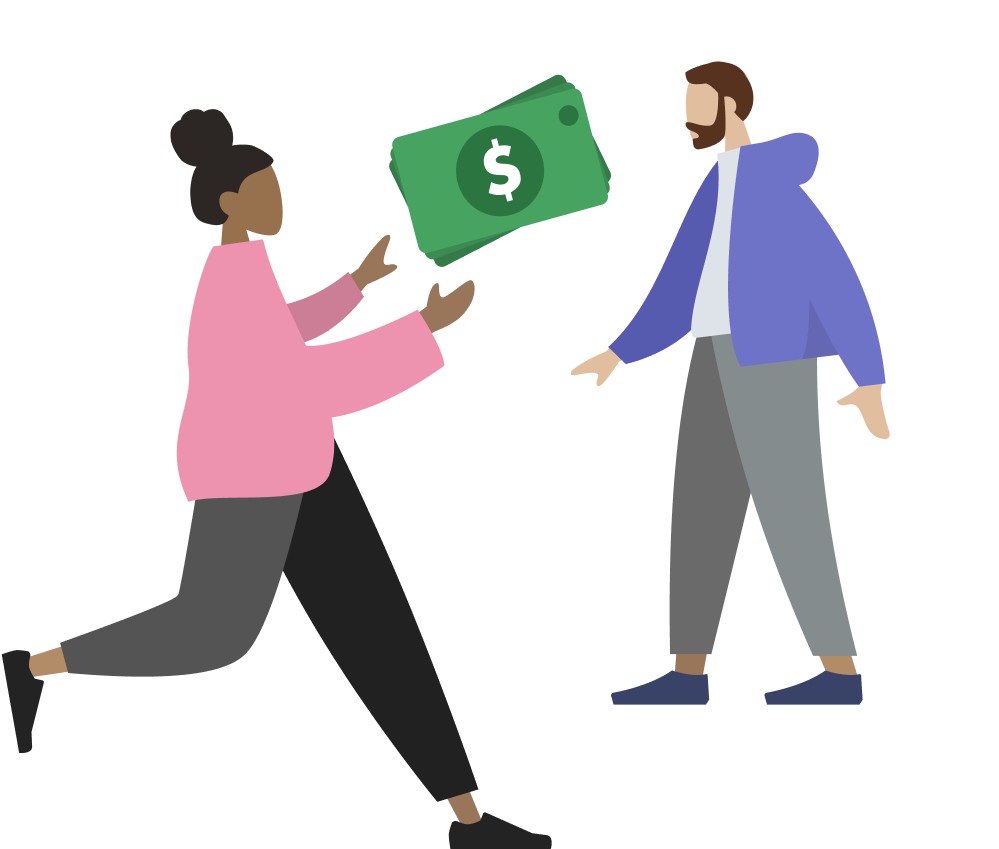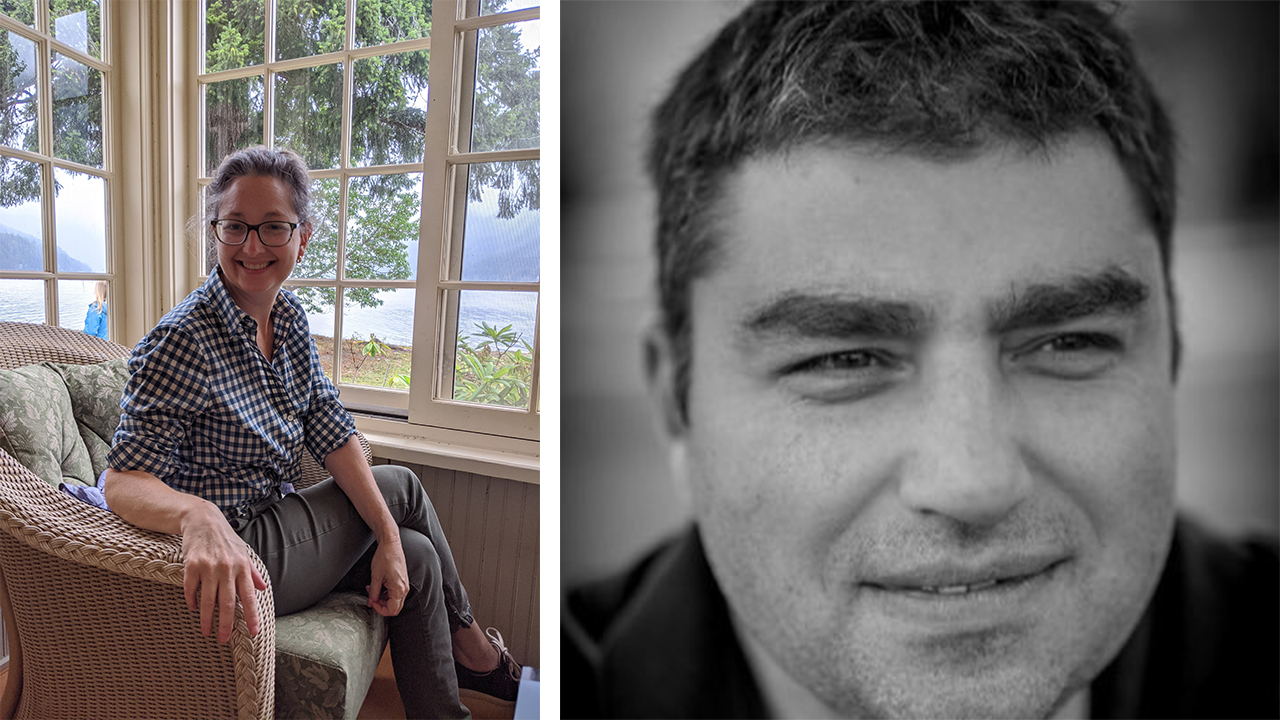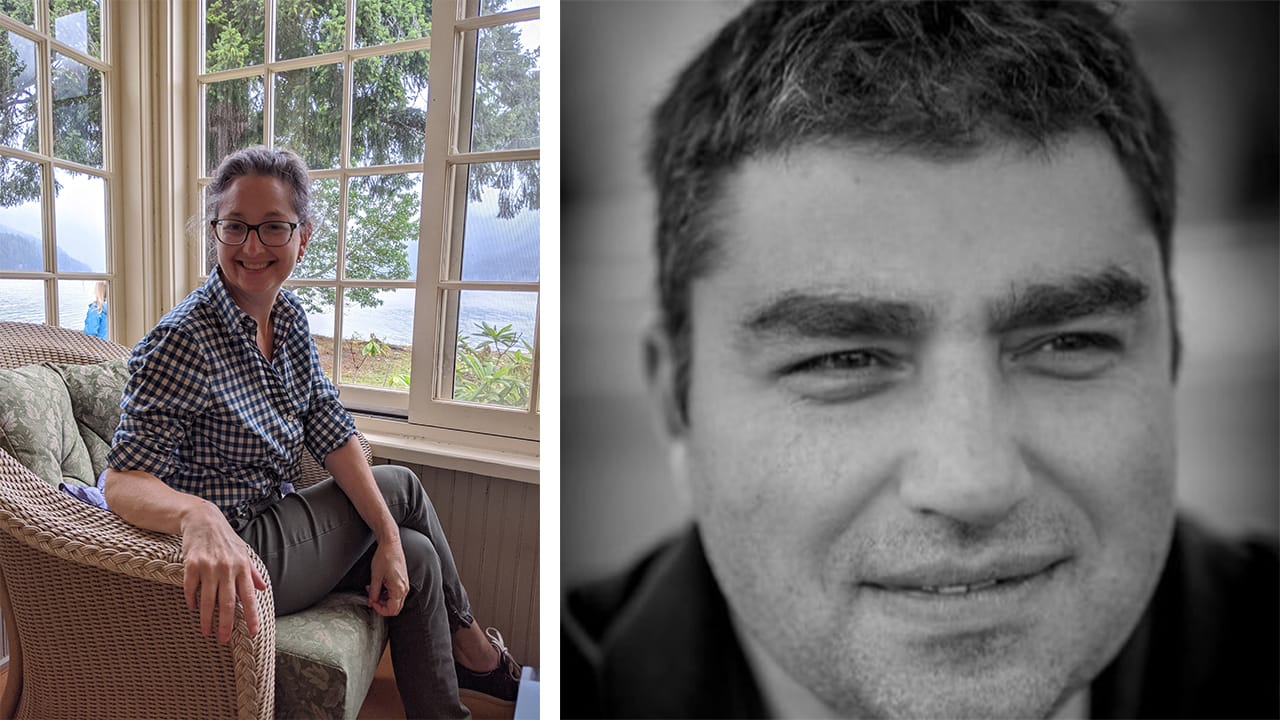This is a guest blog post for the GoFundMe Heroes Hub by Minda Brusse, co-founder of The $1k Project.
From New York, Alex Iskold’s Twitter poll on the evening of April 3, 2020 was a shot in the dark — “Would you be willing to give $1k a month for the next 3 months to one or more families who are out of cash / lost their job / have no savings?” It was an idea he had in thinking about the pandemic crisis, and he wanted to know if others felt the same way. They did, and they told him that they wanted to help build it.

Without finding an existing organization that supported our concept of direct giving, Alex and I decided to co-found The $1k Project two days later. I’m in Seattle and Alex is in New York, but that matters much less during the pandemic with video chats and online collaboration tools.
After many years spent leading startups, our ongoing, full time roles now involve investing in early stage startups. Later in April, Alex wrote in his Startup Hacks blog, “If you had told me ten days ago I’d be a 4x founder, I would certainly have been very surprised.”
We brought together a group of over 40 volunteers from across the country — entrepreneurs, investors, engineers and designers who mobilized to match and fund our first family within days. Each subsequent family we funded helped build and refine our processes, systems, automations and documentation. We matched families with sponsors to fund 5 families, then 10, then 100.
Fast forward ten weeks, and we raised over $1 million dollars and funded over 350 families with $1k a month for three months from 249 different sponsors. To commemorate this milestone, we released an infographic full of stories, stats and showing the power of direct giving across the US during the pandemic.

Each day our team meets the challenges and joys of connecting families in need with sponsors. Hearing back from the families we match with sponsors is a constant reminder and motivation that our work makes an unforgettable impact. From our community partners, we also also know that families of color are disproportionately affected by the pandemic.
Our mission for helping families is simple — it’s in the name of the project itself. Since our start, we’ve organized around three principles.
- A trusted network removes the bureaucracy to fund qualified families quickly.
- Sponsors choose and give directly to specific families, not to a central fund or nonprofit.
- $1k is an enabling amount of financial support. Over three months, it creates a bridge to new employment or other support.

Spreading news of the project to families, nominators and sponsors has been amplified by lots of individuals and a number of influential voices. The first to take notice was Fred Wilson, a well known venture capitalist at Union Square Ventures who sponsored families and shared the project on his AVC blog. From that one post alone, a wave of sponsors found us, and it propelled our initial momentum.
As we found our voice on Twitter, Instagram and other social media, new faces joined as supporters. Casey Neistast, an independent filmmaker and storyteller with a massive following on You Tube, got behind our project in a big way. In trying to deploy $50k of his own funds to individuals, he found out first hand how challenging direct giving can be — so he pivoted to working with us and made a video story about his experience. Through our trusted network, we deployed $20k of his funds to help families, so far.
Another spotlight came from well-known early-stage investor and entrepreneur Brad Feld at Foundry Group. He described the families he supported and shared on his blog:
“The magic of the $1k Project is using trusted connections to trace back to people known to the founders and other people connected to the $1k Project. Families get referred to us through friends, families, and through their former employers who are pained by having to let the employees go.
Think of it for a chain letter in CovidWorld.”
Then, the broader media began to take note. When journalist Ron Lieber of The New York Times reached out, we were delighted to connect. He has been following direct giving as an important trend in philanthropy, and included us in an article on social entrepreneurs. When Alex and I spoke with him, we articulated why we started the project and what it has meant to be part of addressing the heartbreaking gap in support for these families from larger institutions and government.
In ten short weeks, we created a community that values direct giving and a technology platform that supports it. Several factors enabled us to build and move quickly:
- Keeping our team focused and individuals empowered. Relying on a system of “organized chaos” helped us solve problems quickly and take advantage of the talented team of individual contributors. The results are beyond anything we could have managed or planned.
- Leveraging the GoFundMe platform. Using GoFundMe campaigns offered a proven and credible funding platform for all parties involved. Because our team initiates a campaign for each family, we also maintain pseudonymity between the family and sponsor.
- Connecting with community partners and small business owners. Our trusted network for finding families in crisis grew rapidly by partnering with local nonprofits and small business owners.
- Support from amazing sponsors. Individuals, business executives and community leaders “lit up their networks” to build our 1,300 person trusted network.

In the 10 or more weeks since April 5, 2020, the world has changed dramatically, and our sense of ‘normal’ is shattered. However, it means something different in each of our lives. One of our contributors, Jillian Canning, shared a timely sentiment in her Forbes blog article about the project, “We are in the same storm, but not in the same boat.”
For many working families, the situation is not improving. They tell us of struggles to put food on their table, pay for housing, and buy medicine. Only a few months ago, they were getting by, paycheck to paycheck but unable to build savings that would carry them through this crisis.
The $1k Project remains relevant, and will be needed for months to come. For anyone who wants to contribute to our efforts, there’s action you can take right away. Here’s how:
- Become a sponsor by texting 815-552-8075 with an amount to give (min $100) or visit our website to get info on sponsoring a family https://www.1kproject.org/#sponsor
- Nominate a working family in crisis who struggles with rent food, medicine and utilities https://www.1kproject.org/refer.
- Small business owners can nominate former employees who they know are struggling https://www.1kproject.org/employee
- Share your talent! Contact the team at hello@1kproject.org and share your superpower to help our mission of funding families.
For more information on the project and finding our updates on social media, find us online.
Website: 1kproject.org
Twitter: twitter.com/1kprojectorg
Facebook: facebook.com/1kprojectorg
Instagram: instagram.com/1kprojectorg
LinkedIn: linkedin.com/company/1kprojectorg


